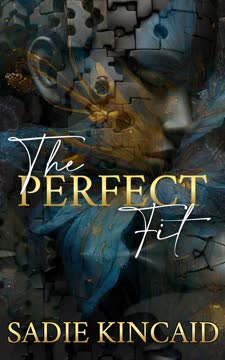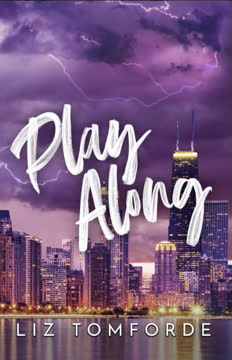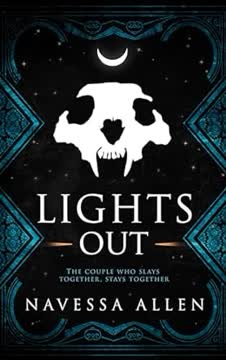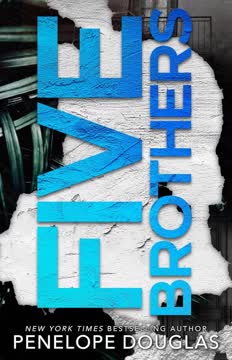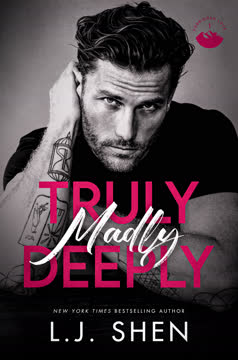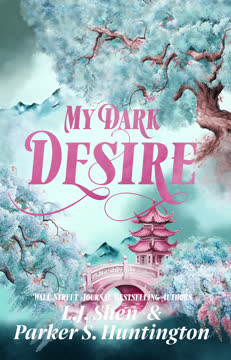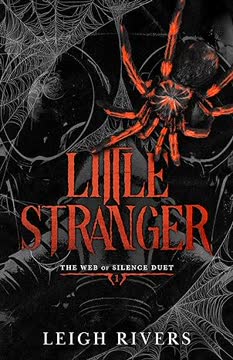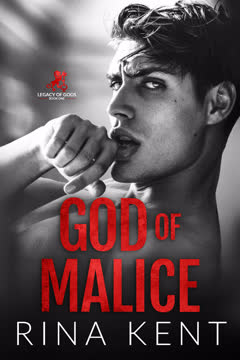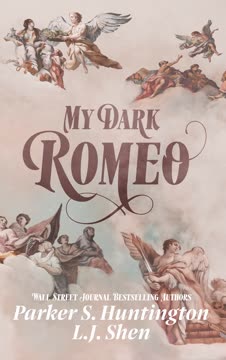Plot Summary
Rooftop Pacts and Scars
On a frigid Valentine's night, Charlotte "Charlie" Richards, reeling from the loss of her parents and the weight of her own guilt, climbs to her school's rooftop to end her life. There, she finds Kellan Marchetti, the school's outcast, with the same intent. Their chance encounter interrupts both their plans. In a moment of raw honesty, they forge a pact: every Valentine's Day, they'll meet on this roof to check in on each other, a lifeline for two broken souls. This annual ritual becomes their anchor, a secret friendship built on shared pain, dark humor, and the hope that maybe, just maybe, they can survive another year. The roof, once a symbol of death, becomes a place of fragile hope and connection.
Black Slug Survival
Charlie and Kellan's lives are marked by trauma—her parents' death in a fire she blames herself for, his mother's overdose and a fractured family. They call their depression the "black slug," a living thing inside them. Through their annual meetings, they share books, stories, and pennies—tokens for their thoughts. Their pact is both a shield and a test: can they keep each other alive? As the years pass, their bond deepens, but so do their struggles. The black slug never fully leaves, but together, they learn to manage its weight, finding solace in each other's presence and the small rituals that keep them tethered to life.
Pennies for Thoughts
Pennies become a symbol of their friendship—a way to ask for honesty when words fail. "A penny for your thoughts" is their code for opening up about pain, secrets, and dreams. These exchanges are lifelines, moments when they can be truly seen. The pennies pass back and forth, accumulating meaning with each year. Through these tokens, Charlie and Kellan learn to trust, to confess, and to hope. The ritual of giving and receiving pennies becomes a quiet rebellion against despair, a promise that someone cares enough to ask and to listen.
Broken Promises, Broken Hearts
As high school grinds on, the world around them grows harsher. Kellan's home life deteriorates under the weight of his father's addiction and his brother Tate's stern guardianship. Charlie's relationship with her sister Leah is strained by guilt and resentment. When Kellan fails to show up for their annual meeting, Charlie is left devastated, haunted by the fear that she's failed him. Their pact, once a source of hope, becomes a reminder of all they cannot save. The pain of broken promises and unspoken love lingers, threatening to unravel the fragile lifeline they've built.
Letters Never Sent
After Kellan's death, Charlie discovers a letter he left for her—a final message she was meant to receive on the day he died. The letter is both a confession and a challenge: he entrusts her with his unfinished manuscript, "Darling Venom," and dares her to finish it. The letter is a lifeline and a wound, a reminder of all the words left unsaid and the futures that will never be. Charlie's grief is compounded by the knowledge that she was too late, that the letter might have changed everything if only she'd received it in time.
The Weight of Guilt
Charlie and Tate, Kellan's older brother, are both haunted by guilt—Charlie for not saving Kellan, Tate for not seeing the signs. Their grief is isolating, but it also draws them together. They circle each other warily, each seeing in the other a reflection of their own pain. The manuscript becomes a symbol of their shared loss, a project that might offer redemption or only deepen the wound. As they work through their grief, they must confront the question: can they forgive themselves, or are they doomed to carry this weight forever?
Venom and Antidote
Charlie and Tate's relationship is fraught with tension, guilt, and forbidden desire. Both are drawn to each other, but the shadow of Kellan's death looms large. Their connection is electric, a mix of comfort and danger. They become each other's antidote, offering solace and understanding that no one else can. Yet, their love is also venomous, laced with the pain of loss and the fear of betraying Kellan's memory. They must decide if they can build something new from the ruins of their grief, or if their love will only deepen the scars.
Siblings and Sacrifice
Charlie's relationship with her sister Leah is a study in sacrifice and resentment. Leah gave up her future to care for Charlie after the fire, but the scars—both physical and emotional—never fully heal. Their dynamic is fraught with unspoken blame and longing for the closeness they once shared. Through therapy, hard conversations, and the slow work of forgiveness, they begin to rebuild their bond. The journey is messy and nonlinear, but it is a testament to the power of family to wound and to heal.
The Manuscript's Secret
Kellan's unfinished novel, "Darling Venom," is more than a story—it is his final message to the world and to those he loved. The manuscript is raw, confessional, and brilliant, a testament to his talent and his suffering. Charlie, with the help of Tate and Kellan's estranged father Terry, undertakes the daunting task of editing and finishing the book. The process is both cathartic and excruciating, forcing them to confront the truth of Kellan's life and death. The manuscript becomes a vessel for their grief, a way to transform pain into art and to ensure that Kellan's voice endures.
Healing in the Aftermath
As "Darling Venom" nears publication, Charlie, Tate, and Leah each find their own paths to healing. Leah learns to accept love and let go of shame, Charlie finds purpose in her work and her relationships, and Tate begins to forgive himself and his father. The process is slow and imperfect, marked by setbacks and small victories. Through therapy, friendship, and the act of creation, they learn that healing is possible, even after unimaginable loss. The scars remain, but they are no longer the whole story.
Love in the Shadows
Charlie and Tate's love story is one of risk and resilience. They must navigate the complexities of their shared grief, the judgment of others, and their own fears of vulnerability. Their relationship is not a fairytale, but a hard-won partnership built on honesty, forgiveness, and the willingness to choose each other every day. In the shadows of their past, they find light in each other, learning that love does not erase pain but can make it bearable.
Redemption and Release
Terry, Kellan's father, finally confesses to his own failings and seeks redemption by helping Charlie finish the manuscript. Tate and Charlie confront their own mistakes and learn to forgive themselves and each other. The act of bringing "Darling Venom" into the world becomes a form of release, a way to honor Kellan's memory and to let go of the guilt that has held them captive. Redemption is not a single act, but a series of choices to do better, to love more deeply, and to live more fully.
The Courage to Forgive
Forgiveness is a central theme—of others, of oneself, of the past. Charlie forgives Leah, Tate forgives Terry, and both learn to forgive themselves. This forgiveness is not easy or immediate; it is a daily practice, a choice to let go of anger and embrace compassion. Through forgiveness, they reclaim their power and begin to write new stories for themselves, ones not defined by tragedy but by resilience and hope.
The Light After Loss
The rooftop, once a place of despair, becomes a site of renewal. Charlie and Tate return there, not to mourn, but to celebrate their love and Kellan's legacy. They choose to build new memories atop the old, to honor the past without being imprisoned by it. The light after loss is not blinding or absolute, but a gentle glow that illuminates the path forward. In choosing life, they choose each other, and in doing so, they find a measure of peace.
Full Circle on the Roof
On the anniversary of Kellan's death and Charlie's birthday, Tate brings her back to the rooftop. There, he proposes, transforming the site of so much pain into a place of hope and commitment. Their journey has come full circle—not erasing the past, but integrating it into a future built on love, honesty, and the courage to keep living. The rooftop, once a symbol of endings, becomes a place of new beginnings.
Choosing Life, Choosing Love
Charlie, Tate, and Leah each make the conscious choice to keep living, to keep loving, despite the scars they carry. Their survival is not a triumph over pain, but a testament to the strength it takes to endure. They learn that life is messy, that healing is nonlinear, and that love is worth the risk. In choosing life, they honor those they've lost and the parts of themselves they've reclaimed.
The Legacy of Darling Venom
"Darling Venom" is published to critical acclaim, ensuring that Kellan's voice and story endure. The book becomes a beacon for others struggling with despair, a reminder that they are not alone. Charlie, now a successful literary agent, continues to champion stories that matter. Tate, having found peace with his past, embraces fatherhood and partnership. Leah, too, finds love and acceptance. The legacy of "Darling Venom" is not just a book, but a testament to the power of connection, the necessity of hope, and the enduring strength of the human spirit.
Characters
Charlotte "Charlie" Richards
Charlie is the emotional heart of the story—a young woman marked by trauma, survivor's guilt, and a fierce determination to keep going. After losing her parents in a fire she blames herself for, she is raised by her older sister Leah, whose own life is derailed by the tragedy. Charlie's depression is a constant companion, personified as the "black slug." Her annual rooftop pacts with Kellan become her lifeline, and after his death, she is haunted by guilt and the fear that she could have saved him. Charlie is introspective, bookish, and deeply empathetic, often putting others' needs before her own. Her journey is one of learning to forgive herself, to accept love, and to transform her pain into purpose—first by finishing Kellan's manuscript, then by building a life with Tate. Her relationship with her sister is fraught but ultimately redemptive, and her love for Tate is both a risk and a salvation.
Kellan Marchetti
Kellan is the tragic center of the narrative—a brilliant, sensitive boy crushed by family dysfunction, bullying, and untreated depression. His relationship with Charlie is both a lifeline and a source of longing; he loves her deeply but is unable to escape his own darkness. Kellan's annual rooftop meetings with Charlie are his only respite, and their shared rituals (books, pennies, confessions) are acts of survival. His suicide is a devastating blow, but he leaves behind a letter and an unfinished manuscript, "Darling Venom," as both a challenge and a gift. Kellan's legacy is complex: he is mourned, loved, and immortalized through his art, but his absence also forces those left behind to confront their own pain and to seek healing.
Tatum "Tate" Marchetti
Tate is Kellan's older half-brother, a successful doctor who becomes Kellan's guardian after their father's addiction spirals. Tate is stern, emotionally closed-off, and haunted by the belief that he failed to save Kellan. His relationship with Charlie is initially antagonistic, marked by mutual suspicion and shared grief. As they work together on Kellan's manuscript, their connection deepens into love—a love complicated by guilt, age difference, and the shadow of Kellan's memory. Tate's journey is one of learning to forgive himself, to accept vulnerability, and to choose love despite fear. His eventual reconciliation with his father and with Charlie is hard-won and deeply moving.
Leah Richards
Leah is Charlie's older sister, forced by tragedy to become her guardian at a young age. The fire that killed their parents leaves Leah physically and emotionally scarred; she gives up her dreams to care for Charlie, but the sacrifice breeds resentment and distance. Leah's journey is one of learning to accept love, to let go of shame, and to forgive both herself and Charlie. Her eventual romance with Jonah, and her willingness to show her scars, is a testament to her growth. The sisters' reconciliation is a central emotional arc, illustrating the power of forgiveness and the complexity of family bonds.
Terrence "Terry" Marchetti
Terry is Kellan and Tate's father, a once-famous author whose addiction and selfishness devastate his family. He is both a source of pain and, eventually, a partner in healing, as he helps Charlie finish Kellan's manuscript. Terry's confession that he plagiarized his most famous work is a moment of reckoning, forcing him to confront his own failures and seek redemption. His sobriety and willingness to support Charlie and Tate mark a late but meaningful transformation. Terry embodies the possibility of change, even for those most lost.
Jonah
Jonah is the Richards sisters' neighbor, a mechanic and single father who becomes a source of stability and affection for Leah. His patience and kindness help Leah learn to accept love and to see herself as worthy, scars and all. Jonah's relationship with Leah is a quiet but powerful subplot, illustrating the healing power of acceptance and the importance of found family.
Hannah
Hannah is Tate's former fiancée, a nurse who tries to create a "perfect" family for Tate and Kellan. Her efforts are well-intentioned but ultimately misguided, and her inability to connect with Kellan contributes to the family's unraveling. Hannah's presence in the story is a reminder of the limits of good intentions and the importance of authenticity in relationships.
Reagan
Reagan is Charlie's boss at the literary agency, a successful and fiercely protective woman who becomes a mentor and friend. Her own struggles with pregnancy and work-life balance mirror Charlie's journey toward self-acceptance and ambition. Reagan's faith in Charlie helps her find her professional voice and the courage to champion Kellan's manuscript.
Sylvia
Sylvia is Tate's long-suffering assistant, a background presence who keeps the clinic running and offers a measure of stability in Tate's chaotic world. Her exhaustion and loyalty are subtle reminders of the unseen labor that supports those in crisis.
Rowling
Rowling, Jonah's young daughter, is a symbol of innocence and the possibility of new beginnings. Her presence in Leah and Charlie's lives is a reminder of the future they are building, one not defined by the tragedies of the past.
Plot Devices
Dual Timelines and Multiple Perspectives
The novel employs a dual timeline, moving between Charlie's adolescence and her adult life, as well as shifting perspectives between Charlie, Kellan, and Tate. This structure allows the reader to experience the slow build of trauma, the evolution of relationships, and the long shadow of grief. The use of letters, manuscripts, and confessions as narrative devices deepens the emotional resonance, revealing secrets at pivotal moments and allowing for catharsis and revelation.
Symbolism: Pennies, Rooftops, and Manuscripts
Pennies symbolize trust, honesty, and the willingness to be vulnerable. The rooftop is both a site of despair and a place of hope, marking the beginning and end of key relationships. The unfinished manuscript, "Darling Venom," is a literal and metaphorical legacy, a vessel for grief, love, and redemption. These symbols recur throughout the novel, grounding the characters' emotional journeys and providing continuity across time.
Foreshadowing and Circular Structure
The story is laced with foreshadowing—early references to scars, missed letters, and the dangers of silence hint at the tragedies to come. The circular structure, with the narrative returning to the rooftop and the annual Valentine's Day meetings, reinforces the themes of recurrence, memory, and the possibility of rewriting one's story. The ending, which mirrors the beginning but transforms its meaning, offers hope without erasing the pain that came before.
Metafiction and the Power of Story
The act of writing, editing, and publishing "Darling Venom" is both a plot engine and a meditation on the power of art to transform pain. The manuscript is a character in its own right, a living testament to Kellan's voice and the healing potential of storytelling. The novel explores the ethics of authorship, the burden of legacy, and the ways in which stories can save—or destroy—those who tell them.
Analysis
"Darling Venom" is a raw, unflinching exploration of grief, survival, and the messy, nonlinear path to healing. At its core, the novel asks what it means to keep living after unimaginable loss, and whether love can be both a poison and a cure. Through its complex characters and layered narrative, the book confronts the realities of depression, suicide, and survivor's guilt without offering easy answers or tidy resolutions. Instead, it insists on the necessity of connection—on the power of small rituals, honest conversations, and the willingness to be vulnerable. The story's use of recurring symbols (pennies, rooftops, manuscripts) and its circular structure reinforce the idea that healing is not about erasing the past, but about building new meaning atop old wounds. In a modern context, "Darling Venom" resonates as a testament to the importance of mental health, the dangers of silence, and the redemptive potential of art. Its ultimate message is one of hope: that even in the aftermath of tragedy, it is possible to choose life, to choose love, and to write a new story for oneself.
Last updated:
Review Summary
Darling Venom received mixed reviews, with some readers praising its emotional depth and character development, while others found it overly long and clichéd. Many appreciated the exploration of grief, mental health, and family dynamics. The romance between Charlotte and Tate divided opinions, with some finding it compelling and others lacking in chemistry. The book's handling of suicide was both praised and criticized. Despite its flaws, many readers found the story engrossing and well-written, particularly commending the author's ability to create complex, redeemable characters.
Similar Books
Download PDF
Download EPUB
.epub digital book format is ideal for reading ebooks on phones, tablets, and e-readers.

